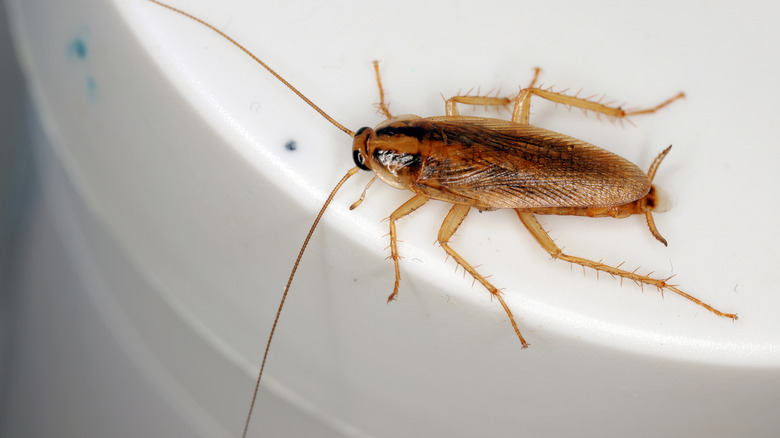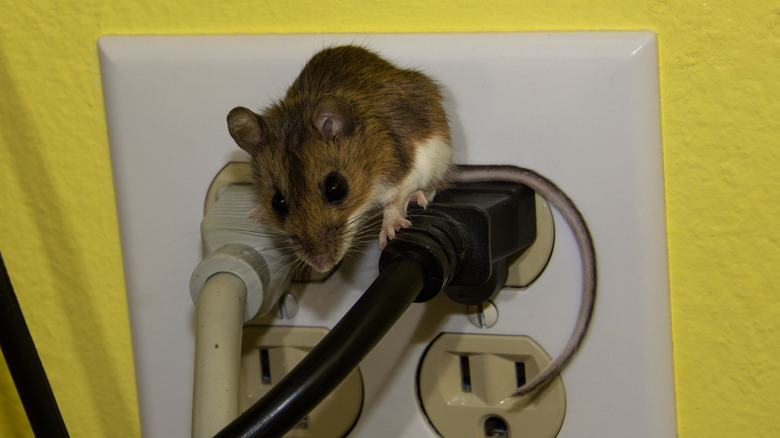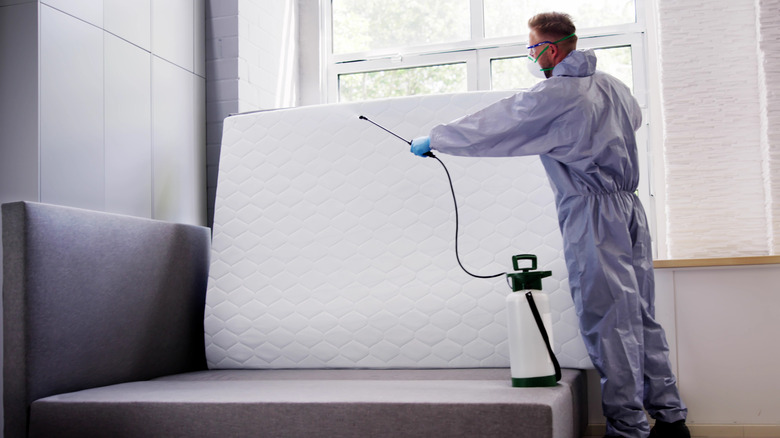We Asked Pest Control Experts About The Worst Kinds Of Infestations
Discovering a pest infestation in your home is the worst. Even when you're diligently using our deep cleaning checklist to make every room in your home sparkle, it only takes one crumb, leaky pipe, or broken seal before bugs move right in. Resolving pest infestations is important for your health, and not just because of the jump scare potential every time you open a cupboard. Allergies can be triggered by cockroaches or other creepy crawlies, and serious infectious diseases can be spread by rodents or other critters.
When House Digest exclusively spoke with four pest control experts about the worst kind of infestations, their answers were widespread. They cited experiences dealing with everything from armies of tiny bedbugs to dozens of 8 to 10-inch Norway rats, and they offered important tips for dealing with them. One common factor agreed upon by three of our experts — Emily Cruz, Truly Nolan's Area Manager for West Texas and New Mexico, Aaron Pratt, a pest control technician and owner of the Truly Nolen Franchise of Gainesville, FL, and Emma Grace Crumbley, an Entomologist at Mosquito Squad – was that German cockroaches are among the worst pests to deal with, for how they proliferate and how difficult they are to eliminate. Meanwhile, Orkin Entomologist Frank Meek clarified that it's less about the type of pest invading your home and more about how and when they are dealt with.
Pest infestations you don't want to find in your home
"The worst infestation I have ever seen involved German cockroaches," said Emma Grace Crumbley, speaking exclusively with House Digest. The problem is that these pests don't usually creep into your home as adults; instead, they hitch a ride on materials like cardboard, as eggs, before hatching and infesting your home. "German roaches have an affinity for areas of warmth, so routers, gaming consoles, ovens, microwaves, coffee makers, and other electric gadgets are all susceptible to a German roach infestation," said Crumbley.
Bed bugs, like roaches, are another hitchhiking pest species that you might not notice until it's too late. Emily Cruz noted that, "Depending on temperature and humidity, they can survive for up to a year without feeding. This makes treatment complex and often overwhelming." Other infestations you don't want to find include flies, rodents, Japanese beetles, ants, and spider mites, but experts agree that these can all be managed if you catch them early, proactively employ methods to deter them, and take all the necessary steps to effectively eliminate the pests — which may involve calling in the professionals.
What makes certain pest infestations particularly bad?
German cockroaches multiply quickly and can spread bacteria and allergens throughout your home, while according to Aaron Pratt, diseases carried by rodents are a particularly problematic issue: "The Hantavirus, Salmonella, and Rat Bite Fever ... [are] just a few that can be spread through urine, saliva, and droppings." As he further clarified, "[Rodents] are known to chew through electrical lines, and plumbing pipes as well as your A/C ductwork." Because of this, it is necessary to act quickly.
Frank Meek put it best, exclusively sharing with House Digest that, "Some of the most difficult infestations we encounter happen when a homeowner has tried to handle a pest problem themselves for too long." While plenty of good (and some questionable) hacks may do the trick if you catch the pests early, Meek warns that "DIY pest control often leads to misapplication of products, which can cause infestations to spread, or worse, create pesticide resistance in the pest population."
Whether you're dealing with roaches, rats, or another pest, avoid using DIY hacks and store-bought products that can't handle large-scale infestations. During her exclusive interview with House Digest, Emily Cruz further stressed the importance of effective pest control when discussing bedbugs, saying, "Many homeowners attempt DIY solutions, often out of embarrassment or in an effort to save money, but these treatments are often ineffective. Bed bug elimination requires a level of thoroughness that DIY methods typically don't achieve."
Dealing with pest infestations (and when to call a professional)
No matter how hard you try to keep insects out of your house, sooner or later, you may find yourself dealing with a serious pest infestation. The vast majority of us have experienced this unpleasant situation. Along with avoiding the sheer terror of finding a bug perched on your toothbrush or feeling something crawling across your bed in the middle of the night, it's important to quickly get pest infestations under control to avoid serious sicknesses, structural damage, or both.
There are a lot of good (and some questionable) hacks out there that may do the trick if you catch a pest infestation early. But according to Emma Grace Crumbley, there are other times you may not be so lucky. "It's important to recognize when you need help with a pest problem," she told House Digest during her exclusive interview. "With German roaches, connecting with a pest management professional (PMP) is almost always the best way to not only control but also get rid of the infestation altogether." The pest control expert added that calling a PMP is a must if you're seeing telltale signs of an infestation or a bunch of bugs, but you aren't sure how they're getting into your home or yard. Crumbley said a pro will know how to carefully inspect all spaces of your house to come up with a plan that tackles the problem in a more specific and effective way, instead of a generalized approach that may not be as effective.
Whether you hire one for prevention or problem solving, it's money well-spent. While the average pest control visit costs under $200, fumigating an entire house can cost you thousands.



